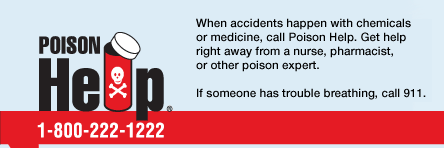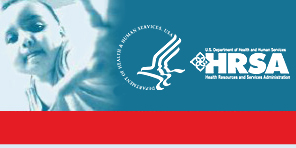

 |

|
Health Resources and Services 1 DIVISION OF HEALTHCARE 1 EMERGENCY TRAINING 1 POISON CONTROL PROGRAM 2 PCP HIGHLIGHTS:NOTICE: 3 THE POISON HELP CAMPAIGN MAKES PROGRESS 3 AAPCC PRESENTS THE CORE APPLICATION DATABASE TO THE FEDS 3 THE POISON CONTROL PROGRAM COLLABORATES WITH THE NATIONAL CONFERENCE OF STATE LEGISLATURES (NCSL) 3 THE POISON CONTROL PROGRAM PARTNERS WITH SAMHSA 4 RESOURCES: 4 CONSUMER HEALTH EDUCATION CENTER 4 PCC TECHNICAL ASSISTANCE POISON HELP U.S. Department of Health and Human Services Department of Health and Human Services HRSA POISON CONTROL Lori Roche Maxine Jones Shkeda Johnson Program, and the Emergency Training Branch. DIVISION OF HEALTHCARE Robin Funston comes to the Health Resources and Services Administration (HRSA) from the Office of the Secretary, within the Department of Health and Human Services (HHS). Ms.Funston most recently served as the Acting Director of the Division of Discretionary Programs within the Departmentís Budget Office and prior to that served as the Chief of the Public Health and Social Services Branch, within the Division. Ms. Funston started in Federal service as a Presidential Management: Intern (PMI) in the Budget Office 17-1/2 years ago. As a PMI, Ms. Funstonís work experience included assignments with the Division of Financial Management of the Alcohol, Drug Abuse and Mental Health Administration (ADAMHA), the Office of Analysis and Evaluation of the HHS Inspector General, and a Senate member's office. Previously, Ms. Funston was the lead Program Analyst in the Budget Office for the Health Resources and Services Administration, the Food and Drug Administration, the former ADAMHA, and the former Office of Human Development Services. Ms. Funston received a Bachelorís Degree with Honors in Politics from Brandeis University and her Masters in Public Management from the School of Public Affairs Lori Roche at the University of Maryland. As the Director Program Director of the Division of Healthcare Preparedness, Ms. Funston will provide leadership and direc¨tion for the National Bioterrorism Hospital Preparedness Program, the Poison Control , the Program, the Emergency System for Advance Registration of Volunteer Health Professionals Program, and the Emergency Training Branch. EMERGENCY TRAINING BRANCH The Emergency Training Branch (ETB) was recently added to the Division of Healthcare Preparedness. The mission of the Branch is to improve healthcare preparedness through the development of a coordinated, competent healthcare workforce. The goals of the branch include: developing a competent healthcare workforce; supporting awardees to evaluate educational programs through exercises and drills; promoting the alignment of healthcare preparedness training with the National Preparedness Goal and subsequent documents; and supporting preparedness and coordination between academic institutions, State and local health departments, emergency management agencies, and the healthcare system. ETB will work closely with the Department of Homeland Security, the Centers for Disease Control and Prevention, the National Bioterrorism Hospital Preparedness Program, and the Emergency System for Advance Registration of Volunteer Health Professionals Program. This new branch is headed by Terri Spear and is staffed by four training specialists. POISON CONTROL PROGRAM HOSTS The Poison Control Program funded and participated in a Diversity Forum which was facilitated by the Pacific Institute for Research and Evaluation (PIRE) on October 25 and 26, 2005 in Calverton, MD. Rick Smith, Acting Deputy Associate Administrator, Healthcare Systems Bureau, Health Resources and Services Administration(HRSA), welcomed the group and offered brief comments on the significance of the Diversity www.hrsa.gov NOTICE: IMMEDIATE CHANGE IN GRANTS Major changes are coming to HRSAís Grant Application Process. For guidances released/posted on or after January 1, 2006, HRSA will no longer accept paper applications for grant opportunities. Applicants submitting new and competing continuations, and a selected number of non-competing continuation applications, will be required to submit electronically through Grants.gov. All applicants must submit in this manner unless the applicant is granted a written exemption from this requirement in advance by the Director of HRSAís Division of Grants Policy. Grantees must request an exemption in writing from DGPClearances@hrsa.gov, and provide details as to why they are not able to submit electronically Whether you plan on applying for a HRSA grant later this month or later this year, it is incumbent on your organization to immediately register in Grants.gov and become familiar with the Grants.gov site application process. If you do not complete the electronic registration process you will be unable to submit an application. The registration process can take up to one month, so start now! To be able to successfully register in Grants.gov, it is necessary to complete all of the following required actions: • Obtain an organizational Data Universal Number System (DUNS) number
• Register the organization with Central Contractor Registry (CCR)
• Identify the organizationís E-Business POC (Point of Contact) Instructions on how to register, tutorials, and FAQs are available at www.grants.gov. Assistance is also available 1) the importance of the identification and inclusion of minorities in public health professions; and On the first day, the panel discussed the consequences of effective education, outreach, and staffing issues. Also, the In summary, there was an array of mixed feelings about how to resolve some of the issues. The panel, as a whole, did not agree on everything mentioned, but everyone seemed to agree on the fact that without partnering with other entities, it becomes very hard to solve some of the problems the poison centers are faced with on a daily basis. The panel concluded with some recommendations upon which HRSA will follow up. The minutes, which list the recommendations, are available upon request and may be obtained by contacting Tiffani Redding, PIRE, at tredding@pire.org. Panel members included: Emilio Saenz, Jr., West Texas Regional Poison Center; Lee McGoodwin, Managing Director, Oklahoma Poison Control Center; Diane Adams, Global Health Technology Infrastructure, Silver Spring, MD; Gwen Olitsky, The Self Help Institute of Therapy and Training, Lansdale, PA; Elvia Perez, Consumer, Little Rock, AR; Jackie Humphries, Consumer, Cincinnati, OH; David A. Boer, Program Director, South Dakota Emergency Medical Services for Children; Diana Denboba, U.S. Department of Health and Human Services/HRSA, Rockville, Maryland; J. Henry Montes, U.S. Department of Health and Human Services, Rockville, Maryland; and Capt. Sheila Norris, U.S. Department of Health and Human Services, Rockville, Maryland. www.hrsa.gov THE POISON HELP CAMPAIGN MAKES PROGRESS Widmeyer Communications, the public relations firm based in Washington, D.C., was selected to work with HRSA to expand the poison help campaign. Work has begun with the gathering of information and the development of a strategic communications plan. Site Visits: The contractor plans to visit the Oklahoma, California and Palmetto Poison Centers to better understand how poison centers operate; two of the three visits have been completed. Kick-off Planning Committee Meeting: On January 18th, a group of organizations was convened for the purpose of gathering exploratory information, possible audiences, and messages for the campaign. Messaging Workshop: A small group of experts (Widmeyer and AAPCC representatives) will convene to develop potential messages, based upon feedback from the planning committee meeting and from poison center questionnaires. Focus Groups: Widmeyer is in the process of setting up 11 focus groups across the country to gather information from the general public, African Americans, Hispanics, parents of young children, parents of tween/teens, the older Americans, and medical professionals. The messages developed in the messaging workshop will be tested in the focus groups. If you have any questions or comments about the campaign, you may contact Lori Roche at 301-443-0652 or lroche@hrsa.gov.
AAPCC PRESENTS THE CORE APPLICATION On January 13, 2006 the American Association of Poison Control Centers (AAPCC) joined representatives from HRSA, the Centers for Disease Control, the Environmental Protection Agency, the Food and Drug Administration, the Consumer Product Safety Commission, the Substance Abuse and Mental Health Services Administration (SAMHSA), the Institute of Medicine, Widmeyer Communications, and the Poison Center Technical Assistance Resource Center (TARC) to update the group about the core application database project underway at AAPCC. AAPCC was also requested to provide a history of the data collection efforts, explain its capabilities, and describe how the data gathered and analyzed can be potentially applicable to each of the Federal organizations.
THE POISON CONTROL PROGRAM COLLABORATES The NCSL provides research, technical assistance, and opportunities for policymakers to exchange ideas on the most pressing State issues. The Poison Control Program (PCP), along with the technical assistance resource center (TARC), initiated a potential project with NCSL to develop a resource that could be used to educate State legislators about the important role that poison centers play in public health. NCSL suggested a map postcard for each State. The PCP requested feedback from the poison centers and the response was great. We have compiled the feedback and forwarded it to NCSL. Once a draft postcard is compiled, we will forward it to the poison centers and the American Association of Poison Control Centers (AAPCC) for comment prior to the development of a final product. Key points that poison centers want to educate legislators about include which States have and mandate poison centers and which States mandate funding for poison centers. Other suggestions included educating legislators about the services poison centers provide, the expert staff treatment recommendations, and the cost savings of using a poison center. For more information on NCSL, go to http://www.ncsl.org/. THE POISON CONTROL PROGRAM PARTNERS WITH SAMHSA The Poison Control Program (PCP) has become a Recovery Month partner with the Substance Abuse and Mental Health Services Administration (SAMHSA). As a partner, the PCP is working with SAMHSA to incorporate the toll-free number, as a resource, into the Recovery Month Planning Kit. More information on Recovery Month is available at http://www.recoverymonth.gov/2005/. www.hrsa.gov RESOURCES: The HRSA Geospatial Data Warehouse (HGDW) is the agencyís centralized database, providing access to a wide range of information about its programs, related health resources, and demographic data. for poison control centers as it provides information about grants offered by the Poison Control Program (PCP), and other bureaus in HRSA, and explains how to get demographic data on specific geographic areas. Among the features of the HGDW, two noteworthy tools (the Report Tool and Map Tool) can be very beneficial to the poison control centers. The Map tool, which goes hand-in-hand with the Report Tool,allows users to view a graphic representation of the data
available in the HGDW. Through this feature, users can create a map based upon specific data. In addition, grantees can
view other areas that receive PCP grants, acquire general poison control research data, and generate a detailed map of
other HRSA activities. visualize geographic designations that are specific to HRSA programs, such as the Health Professional Shortage Areas (HPSA), Medically Underserved Areas/Populations (MUA/P), and Primary Care Service Areas (PCSA). The Report Tool provides the same information as the Map Tool, but presents the data in a tabulated report format. The Report Tool also allows grantees to learn and access other grants in HRSA, access contact information of program coordinators in other areas, and retrieve and save results in various formats. To learn more about the HRSA Geospatial Data Warehouse and its features, log on to http://datawarehouse.hrsa.gov CONSUMER HEALTH EDUCATION CENTER The Consumer Health Education Center was developed, in 2005, to help improve the safe use of over-the-counter drugs by consumers. The center provides tips sheets, fact sheets, educational campaigns, and other resources to help consumers (women, men, children, and the elderly) appropriately and safely use and administer medicines. More information on the center is available at http://www.checforbetterhealth.org/Chec/.
PCC TECHNICAL ASSISTANCE The Pacific Institute for Research and Evaluation (PIRE), PCC Technical Assistance and Resource Center (TARC) providestechnical assistance (TA) to PCCs on behalf of HRSA. TA is available in several areas including strategic planning, fundraising, health education development and enhancement, program evaluation, and media support. To request TA, PCCs maycontact Stuart Swayze at 301-755-2794 or swayze@pire.org. www.hrsa.gov Visit the Adobe Reader Web site and follow the instructions to download the appropriate version of Adobe Reader for your operating system. |
|